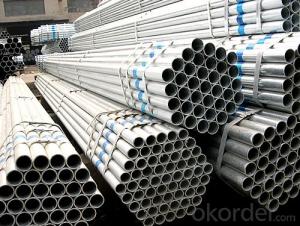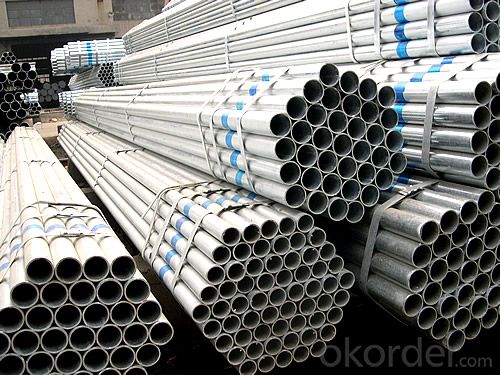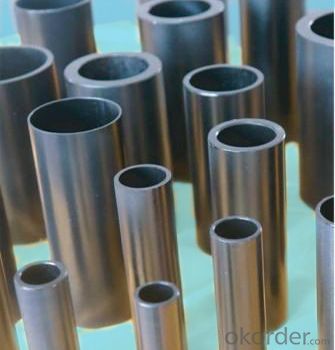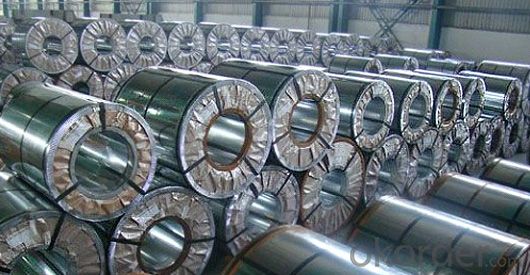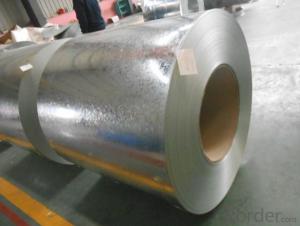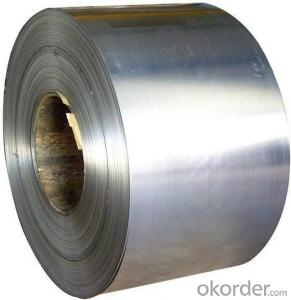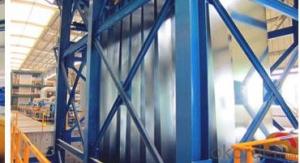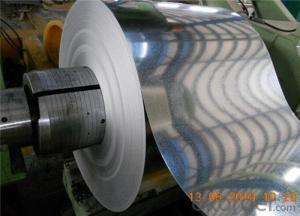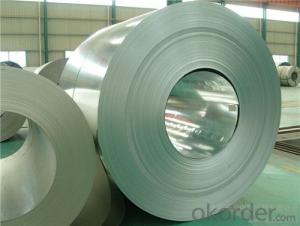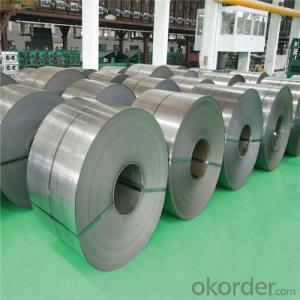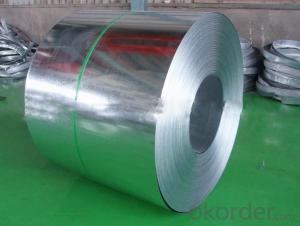Regular Spangle Galvanized Steel for Garage Doors
- Loading Port:
- Tianjin
- Payment Terms:
- TT OR LC
- Min Order Qty:
- 25 m.t.
- Supply Capability:
- 1000 m.t./month
OKorder Service Pledge
OKorder Financial Service
You Might Also Like
Regular Spangle Galvanized Steel for Garage Doors
Quick Details
| Standard: | ASTM, DIN, JIS | Grade: | A591, ST1203, G3313 | Thickness: | 0.25 ~ 2.40 |
| Type: | Steel Coil | Technique: | Cold Rolled | Surface Treatment: | Galvanized |
| Application: | Container Plate | Special Use: | High-strength Steel Plate | Width: | 20mm ~ 1524mm |
| Length: | As your requirement (Sheet & Coil) | Electro Galvanized Steel Sheet: | egi | Electro Galvanized Steel Sheet & Coil: | egi |
PRODUCT FEATURES
Formability - Unlike Hot-Dipped Galvanized Steel, the base metal of the Electro-Galvanized Steel
is less affected by the heat and therefore, it is able to retain its formability.
Paintability - Free from any spangles and pin-holes, the Electro-Galvanized Steel has a flawless
surface that is most ideal for any type of painting.
Corrosion Resistance - The EGI's evenly coated zinc enhances its resistance to any type of corrosion.
(Additional surface treatments are available for further enhancement of corrosion resistance.)
Weldability - Among all coated steel, the EGI has the highest weldability due to minimum
amount of zinc being coated.
.Application of hexavalent chromium alternative material
- Develop trivalent chromium, a stable material, as the main component
(Add etching agent, reducing agent, level agent, etc.) : Cr-free, non-toxic chromate
- Superior corrosion resistance: secure same corrosion resistance level of existing products
.Environment-friendly products
- Environment-friendly products harmless to humans and environmental pollution preventive
- Actively corresponds to environmental regulations of Europe and other leading countries
Specification & Available size range
| Item | Figure | Coating | Quality | Surface |
| Thickness | 0.25 ~ 2.4mm | 05/05 G/SQ MTR | SECC | PHOSPHATED |
| Width | 600~ 1,524mm | 10/10 G/SQ MTR | SECD | CHROMATED / CHROME FREE |
| Sheet Length | 600 ~ 5,000mm | 20/20 G/SQ MTR | SPEC | OILED |
| Coil Inner Diameter | 508 / 610 mm | 30/30 G/SQ MTR | SECEN | ANTI FINGER |
An order of inquiry should be accompanied by the following information.
1. Size : Thickness / Width / Length ( in case of Cut Lengths).
2. Specification requirement : Coating designation or Wt / Type of coating & surface treatment
Coil I.D / Packing Weight.
3. Quantity.
4. Intended use
5. Packing and marking requirement.
6. Delivery Requirement.
7. Required inspection, if other than mill inspection.
8. Other pertinent information.
Picture:
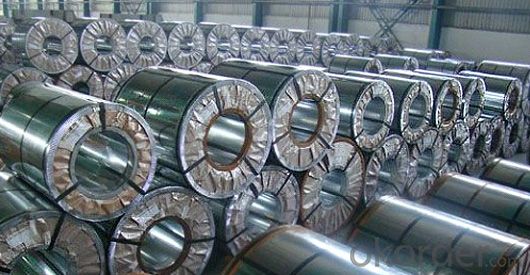
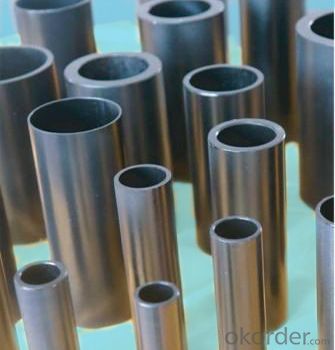
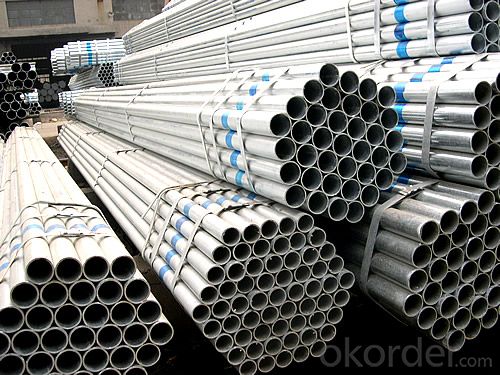
- Q: How does the thickness of a steel coil affect its applications?
- The thickness of a steel coil affects its applications by determining its strength, durability, and versatility. Thicker steel coils are typically stronger and more resistant to bending or deformation, making them suitable for heavy-duty applications such as construction projects, automotive manufacturing, and infrastructure development. Thinner steel coils, on the other hand, are more flexible and easier to shape, making them ideal for applications that require intricate designs or a lightweight material, such as in the production of electronics, household appliances, or packaging materials. Ultimately, the thickness of a steel coil plays a crucial role in determining its suitability for specific applications based on the desired strength, flexibility, and weight requirements.
- Q: How are steel coils used in the manufacturing of automotive hoods?
- Steel coils are used in the manufacturing of automotive hoods as they are shaped and cut into specific dimensions to create the hood's structure. These coils are typically formed into panels through processes like stamping, pressing, and forming, which are necessary to achieve the desired shape and strength.
- Q: What are the different types of steel alloys used in coils?
- Coils commonly employ various types of steel alloys, each possessing unique properties and characteristics. Some frequently used types include: 1. Carbon Steel: As the most fundamental and widely utilized steel alloy in coils, it boasts low carbon content and renowned strength and durability. Carbon steel coils find extensive application in areas demanding high strength, such as automotive parts, construction materials, and machinery components. 2. Stainless Steel: Comprising an iron, chromium, and other element alloy, stainless steel coils exhibit exceptional resistance to corrosion, formidable strength, and heat resistance properties. They are typically employed in scenarios where shielding against corrosion and staining is pivotal, such as kitchen appliances, medical equipment, and transportation components. 3. Galvanized Steel: Galvanized steel coils are formed by coating regular carbon steel with a layer of zinc, furnishing excellent corrosion resistance and safeguarding the underlying steel from rust. Commonly utilized in outdoor settings like roofing, fencing, and automotive body parts. 4. Alloy Steel: Alloy steel coils are manufactured by incorporating diverse alloying elements like manganese, nickel, chromium, or molybdenum into carbon steel, thereby enhancing the steel's strength, hardness, and wear resistance. These coils frequently find application in industries necessitating high strength and toughness, such as machinery, tools, and construction equipment manufacturing. 5. Electrical Steel: Electrically specialized steel coils are designed explicitly for employment in electrical equipment like transformers and electric motors. These coils possess low electrical resistance and high magnetic permeability, facilitating efficient electricity conduction and magnetic field generation. Typically constructed from a silicon alloy, which enhances electrical and magnetic properties. In conclusion, the selection of a steel alloy for coils hinges upon the specific requirements of the given application, encompassing factors like strength, corrosion resistance, electrical conductivity, and heat resistance.
- Q: What are the advantages of using steel coils over other materials?
- There are several advantages of using steel coils over other materials. Firstly, steel is highly durable and has a long lifespan, making it ideal for various applications. Secondly, steel coils have excellent strength and can withstand heavy loads and extreme weather conditions. Thirdly, steel is recyclable and environmentally friendly, ensuring sustainability. Additionally, steel coils provide superior corrosion resistance, reducing maintenance costs. Lastly, steel offers versatility in terms of customization, allowing for various shapes, sizes, and thicknesses to meet specific requirements.
- Q: What are the pros and cons to selecting a graphite shaft sand wedge over steel shaft?
- I would assume that you want to carry at least two sand wedges in your bag - the modern set makeup today will have a 52 or 54 and a 58 or 60. Unless you are getting the matching wedges to a set of graphite irons , I would go with a steel shaft in sand wedges.
- Q: Can steel coils be coated with zinc-nickel alloy?
- Yes, steel coils can be coated with zinc-nickel alloy.
- Q: How are steel coils used in the production of automotive chassis?
- Steel coils are used in the production of automotive chassis as they provide the primary material for constructing the framework of the vehicle. These coils are first processed and shaped into the desired form, such as beams or plates, which are then welded together to form the chassis. The high strength and durability of steel make it an ideal choice for withstanding the stresses and loads experienced by the chassis, ensuring the safety and structural integrity of the vehicle.
- Q: Hi, I have ranch style home. I would like to remove a barring wall, And leave it open it will become a 18' foot 7 inch opening , and I'm interested in installing a steel beam so that i may remove the barring wall that supporting the ceiling and rafters. My house is about 57' feet long 28' feet 7 inch wide and it is 13' feet high from the floor to the top of the roof ridge. I heard there is aluminum beams but I never heard of that, I've only heard of steel beams. I don't want to use wood. I would also like to now how much longer do i need the beam to be the opening would be 18'7 plus the extra that i would need to put on the block wall to hold the beam up, do I make it 2' feet bigger so i can have a foot on each side that would sit on a block wall. or do i need more then that.THanks for your help
- My okorder for help
- Q: What are the different types of corrosion protection for steel coils?
- There are several types of corrosion protection for steel coils, including hot-dip galvanizing, electro-galvanizing, paint coatings, and organic coatings. Hot-dip galvanizing involves immersing the steel coil in a bath of molten zinc, creating a protective layer on the surface. Electro-galvanizing is a similar process, but uses an electric current to deposit a layer of zinc onto the steel. Paint coatings provide a barrier between the steel and the environment, preventing corrosion. Organic coatings, such as epoxy or polyurethane, also provide a protective layer and can be applied by various methods such as spraying or dipping.
- Q: So...I'm learning about how steel is made and I'm wondering if there is a more environmentally friendy method. I view it as unfriendly b/c of the oxygen that is injected when the steel is in the blast furnace or electric arc furnace. This oxygen bonds w/ the carbon to produce CO and CO2. THis is necessary to reduce the amount of carbon content to produce harder steels. So what other methods are there that can be used w/o having to end up w/ co and co2? thanks
- From what I understand of it, US steel is better as the steel is more recycled than Canadian, so a lot of that oxygen / CO2 has already taken place compared to working from ore. The second reason US steel is environmentally ahead of Canadian is that US tends to use Electric Arc, while Canadian uses Basic Oxygen, Basic Oxygen uses more energy than electric arc, and I think it also uses more oxygen, but I would suspect that oxygen that it uses is 'waste oxygen' and not converted into Co2 because the Co2 process is limited by the carbon, and steel only has so much carbon.
Send your message to us
Regular Spangle Galvanized Steel for Garage Doors
- Loading Port:
- Tianjin
- Payment Terms:
- TT OR LC
- Min Order Qty:
- 25 m.t.
- Supply Capability:
- 1000 m.t./month
OKorder Service Pledge
OKorder Financial Service
Similar products
Hot products
Hot Searches
Related keywords
